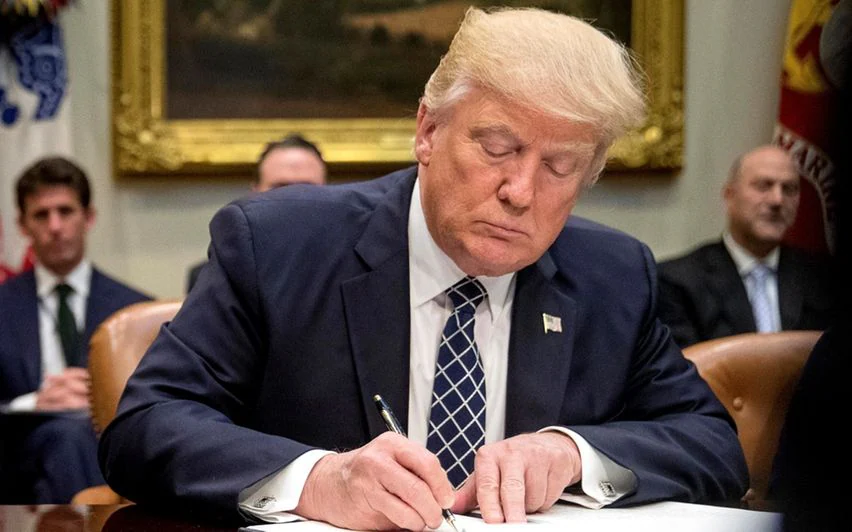In a bold move aimed at reshaping the U.S. government, President Donald Trump has signed an executive order that formalizes the Department of Government Efficiency (DOGE), a commission led by tech mogul Elon Musk. This initiative focuses on cutting waste, modernizing technology, and restructuring federal agencies to enhance efficiency and reduce costs. While the executive order has sparked hope for reforms, the commission’s future is clouded by legal battles and intense criticism.
What is DOGE and Why Is It Important?
The Department of Government Efficiency, commonly known as DOGE, is a new initiative introduced by President Trump and championed by Elon Musk. Its primary goal is to revamp the federal government by cutting unnecessary expenditures, modernizing outdated technology systems, and restructuring federal agencies to improve their performance. The vision behind DOGE is to create a more efficient government, reducing waste and improving services for American citizens.
Previously known as the U.S. Digital Service (USDS), DOGE will inherit the mission of modernizing federal IT systems but with a broader focus on efficiency and cost reduction. The transformation will involve a comprehensive software modernization plan designed to overhaul outdated governmental infrastructure and technology.
Key Features of Trump’s Executive Order
In signing the executive order, President Trump has laid out a clear framework for how DOGE will function within federal agencies. Key elements of the order include:
- DOGE Teams in Federal Agencies: Each agency will create a DOGE team consisting of a leader, an engineer, an HR specialist, and an attorney. These teams are tasked with streamlining operations within their respective agencies. The heads of federal agencies are expected to implement these teams within 30 days of the executive order.
- The U.S. DOGE Service Temporary Organization: A temporary organization has been established to oversee the implementation of DOGE’s 18-month agenda. The organization will operate until July 4, 2026, with its mandate to ensure the successful rollout of the reform plans before the Ohio gubernatorial election later that year.
- Focus on Cost-Cutting and Efficiency: One of DOGE’s primary goals is to save the federal government up to $2 trillion. This ambitious plan involves eliminating waste, reducing redundant agencies, and possibly trimming the size of the federal workforce.
Legal and Political Challenges Facing DOGE
While Trump’s executive order has been hailed by some as a necessary step towards government reform, it has also attracted significant legal and political opposition. Critics have raised concerns about the legality of the commission and its potential impact on federal agencies and services.
- Lawsuits and Legal Concerns: Three lawsuits have already been filed against DOGE, alleging that the commission violates the Federal Advisory Committee Act (FACA). This law mandates transparency, balanced representation, and public participation in federal advisory groups. Critics, including Democracy Forward, have called DOGE a “shadow operation” that lacks transparency and accountability. They argue that the commission has failed to meet the legal requirements set by FACA.
- Concerns Over Lack of Representation: Another criticism centers on the makeup of DOGE’s members. Advocacy groups, such as Public Citizen and the American Federation of Government Employees, have argued that the commission does not adequately represent the interests of everyday Americans. These groups believe that the reforms proposed by DOGE may disproportionately favor corporate interests, particularly those aligned with Elon Musk’s vision.
- Bipartisan Political Criticism: Some national security advisors and political figures have voiced concerns that DOGE bypasses established advisory procedures. The restructuring proposals by Musk, including the potential merging of the Federal Deposit Insurance Corporation (FDIC) with other agencies, have sparked significant debate. Critics warn that such changes could undermine financial stability and create unnecessary risks.
Elon Musk’s Role and the Controversial Reforms
Elon Musk’s involvement in DOGE has drawn attention due to his background as a billionaire entrepreneur and CEO of Tesla and SpaceX. Musk’s proposals for government reform have sparked both optimism and controversy.
- Cost-Saving Proposals: Musk has suggested that DOGE could save up to $2 trillion by eliminating wasteful government spending and reducing the size of the federal workforce. However, critics have pointed out that the feasibility of such sweeping cuts remains uncertain. Musk himself has toned down some of his more ambitious claims, acknowledging the complexity of implementing such large-scale reforms.
- Reforming Federal Financial Institutions: One of the most controversial aspects of DOGE’s agenda involves the proposed restructuring of key financial institutions. Musk has suggested nullifying the Federal Deposit Insurance Corporation (FDIC) and restructuring it alongside the Federal Reserve and the Office of the Comptroller of the Currency (OCC). Additionally, there are proposals to eliminate the Consumer Financial Protection Bureau (CFPB), a move that has been heavily criticized by financial experts and consumer protection advocates.
- Political Tensions and Leadership Changes: DOGE’s journey has been far from smooth. One notable development was the departure of co-leader Vivek Ramaswamy, who left the commission amid reports of disagreements with Musk. Ramaswamy is now expected to run for governor of Ohio, adding another layer of political intrigue to the already controversial initiative.
The Road Ahead for DOGE and Government Reforms
As Trump’s executive order moves forward, the future of DOGE remains uncertain. Legal battles, political opposition, and concerns about transparency and representation could significantly impact the commission’s ability to achieve its reform goals. While the idea of reducing waste and improving efficiency in government has broad appeal, the implementation of such a sweeping plan will likely face considerable hurdles.
Supporters of DOGE argue that the commission’s bold approach is necessary to modernize and streamline the federal government. However, critics warn that without proper safeguards and transparency, the reforms could result in unintended consequences, including the loss of essential government services and protections for ordinary citizens.
In conclusion, the formalization of DOGE under Trump’s executive order represents a significant shift in the way the U.S. government could operate in the future. Whether or not it can overcome the legal challenges and political opposition it faces will determine the ultimate success or failure of this ambitious reform initiative.

